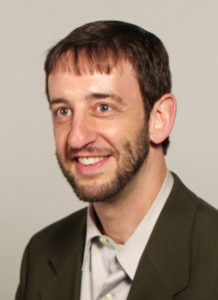Commentary on Parshat VaEt’chanan (Deuteronomy 3:23 – 7:11)
There’s a bit of a debate as to who really said it first. Stories attribute the now-famous quote to any of three different legendary football coaches – Bear Bryant, Paul Brown, and Vince Lombardi. While we may never know the original source of it, the phrase has become sage advice for so many:
“Act like you’ve been there.”
According to one story, Packers kick returner Travis Williams danced in the end zone after scoring a touchdown. Lombardi said to him, “Travis, the next time you make it to the end zone, act like you’ve been there before.”
I think of this often in my ongoing study of Torah. It seems to me that so many of the laws and precepts set forth by our ancient text are grounded, more or less, in exactly this concept. At least 36 times does the Torah tell us not to oppress the stranger. Why? Because we were strangers, we were oppressed, we have been there. We are commanded to look out for and take care of the widow, the orphan, the impoverished, both because they are some of the most vulnerable in our world and because we have been vulnerable. We read the Holiness Code on Yom Kippur because, while its instructions to judge fairly and to have honest weights and measures, to not curse the deaf or put a stumbling block before the blind, may seem obvious to us today, our history indicates otherwise. We hear these laws precisely on the holiest day of the year because we don’t need to act like we’ve been there. We’ve been there. And we are never allowed to forget it.
Sign up to receive Torah from T’ruah in your inbox each week.
So it is in VaEt’chanan, this week’s Torah portion. In Moses’ ever-unfolding recap of the Israelites’ journey, we hear, for the second time in the text, the pronouncement of the 10 Commandments. And while the giving of the tablets only occurred once, and the commandments themselves are the same, the Deuteronomy version is a little different from that which we found in Exodus. The Exodus edition instructs to remember (zachor) the Sabbath day and keep it holy, with God’s creation of the universe in six days as the rationale behind it. Interestingly, the commandment in Deuteronomy not only gives a different imperative verb in its wording – shamor, to observe, guard, or protect – but also a completely different explanation in support. Here, rather than God’s creation being the impetus for our Shabbat observance, the reason stated is this:
“Remember that you were a slave in the land of Egypt and the Eternal your God freed you from there with a mighty hand and an outstretched arm; therefore the Eternal your God has commanded you to observe the Sabbath day.” (Deut 5:15)
Or, in other words, act like you’ve been there. Because you have. You, as a collective people throughout history, you have known slavery. You have known oppression. You have known what it feels like to be the “stranger in a strange land.” And you know how awful that was. So you better not do that to anyone else.
Find more commentaries on Parshat VaEt’chanan
It is this interpretation that continues to inspire my community and me. This fundamental Jewish teaching is the foundation of initiatives like our congregation’s incredible efforts in helping to relocate and settle two refugee families here in our community. It is this pillar of our tradition that led us to join the Emergency Shelter Partnership with the churches in town, to provide a safe space to sleep and hot meals for itinerant laborers during the coldest months of the year. Collecting winter coats in our annual drive, providing for the homeless in Manhattan on our annual Midnight Run, canned food drives – all of these and so many more sacred initiatives hold this basic concept at its genesis.
 Earlier in this same portion, we read, “Take utmost care and watch yourselves scrupulously, so that you do not forget the things that you saw with your own eyes and so that they do not fade from your mind as long as you live” (Deut 4:9). When we remember as a people where we have been, what we have been through, what we have seen with our collective eyes; when we return to our history and our sources to inspire us to act justly and fix the cracks of a beautiful but still broken world, that is indeed when we are at our best – as Jews and, most importantly, as human beings.
Earlier in this same portion, we read, “Take utmost care and watch yourselves scrupulously, so that you do not forget the things that you saw with your own eyes and so that they do not fade from your mind as long as you live” (Deut 4:9). When we remember as a people where we have been, what we have been through, what we have seen with our collective eyes; when we return to our history and our sources to inspire us to act justly and fix the cracks of a beautiful but still broken world, that is indeed when we are at our best – as Jews and, most importantly, as human beings.
Joshua Strom is the rabbi at Congregation B’nai Yisrael in Armonk, N.Y., where he is beginning his fifth year serving this community. He lives in nearby Chappaqua with his wife Tali and sons Jonah, Gabriel, and Caleb.

